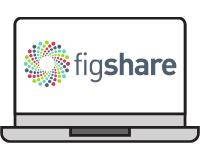 figshare is a general-purpose file repository that accepts all forms of research output from data files to presentation files (e.g. Powerpoint presentations). The following discusses individual submissions to figshare, but additional features are available through institutional and publisher figshare instances.
figshare is a general-purpose file repository that accepts all forms of research output from data files to presentation files (e.g. Powerpoint presentations). The following discusses individual submissions to figshare, but additional features are available through institutional and publisher figshare instances.
Compare figshare to other options in the Harvard Biomedical Repository Matrix.
Please contact us if you have any questions or suggestions about the content of this page. Last updated: 2023-11-13
Features & Specifications
Data Size and Format
File Size Limit: System-wide limit of 5TB per file.
Dataset Size Limit: 20GB of private data files. Figshare+ (designed for larger datasets) offers storage in stages beginning with 100GB up to over 10TB per dataset. No limit on storage space per researcher.
Data Types and Formats Hosted: All file types (both compressed and non-compressed formats) are accepted. Some file types are rendered in the browser page. Files are tagged as follows: figures, datasets, media, code, paper, thesis, poster, presentation, and fileset
Data Licensing
Waiver: Creative Commons Zero (CC0)
Code and software: MIT, GPL-3.0, or Apache-2.0. All other files: CC-BY. These licensing rules apply to all individuals uploading files directly to figshare. Institutions and publishers are allowed to mandate alternative licenses.
Data Attribution and Citation Tools
figshare assigns a DOI to each individual file at the point of publication. Authors can also add an ORCID ID, so all items are pushed to ORCID. Related files can be aggregated under a master DOI encompassing a Collection. A suffix is added to a file-level DOI when a file is revised or replaced to enable version control.
User Access Controls
Option to Share:
- Before the dataset is released publicly, a user can share it with a private sharing link or through a project/collaboration group.
- Publishers who have integrated their editorial workflow with figshare may have additional user access controls enabled to allow the journal's editors and reviewers to have anonymous and secure access to files before they are made public.
- All data can be downloaded for free by users.
Data Access Tools
Search:
- Free-text search functionality is provided. Limited metadata, which consist of keywords and information about any associated publication, are recorded.
- Detailed, file-associated metadata are not recorded in the general-use figshare repository and thus are not searchable, but institutional figshare instances are allowed to develop custom metadata standards.
Download: In addition to individual file downloading, figshare has an API for programmatic data and metadata access.
Data Analysis: None
Cost
Free. Figshare+ has a one-time fee based on the size of the dataset requested.
Other Features
Pros
- Can collaborate or publicly share diverse research output files (published or unpublished) in a central, general data repository
- A DOI for one or more diverse research output files (published or unpublished)
- figshare offers preservation backed by CLOCKSS, a highly trusted, community-governed archive used by repositories around the world
- All content to be retained for the lifetime of the data repository, ensuring long-term preservation.
Cons
- Proprietary file format access: for in-browser viewing only
- figshare is funded by a for-profit company funded by Digital Science
- Data is not curated; it will not be received before publication unless organizations using figshare for their institutional repository enact a review feature. Figshare+ does include curation of files and metadata before they are published.